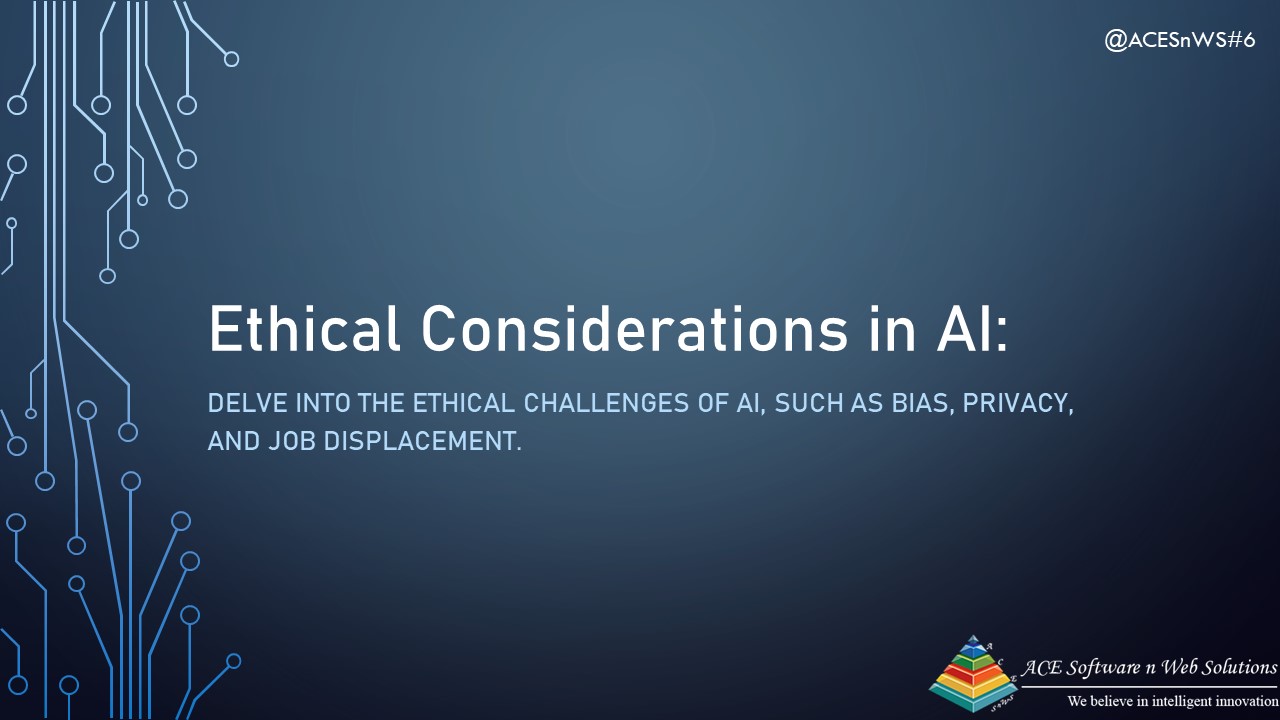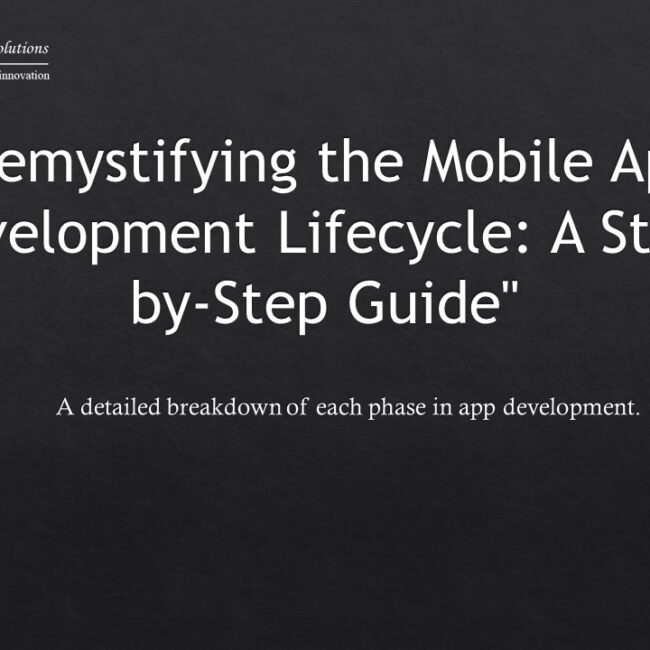
Navigating the Ethical Challenges of AI: Bias, Privacy, and Job Displacement
Introduction
The rapid advancement of Artificial Intelligence (AI) technologies has brought about a transformative era across various sectors, but it also raises significant ethical concerns. In this blog, we will delve into three key ethical challenges associated with AI: bias, privacy, and job displacement. Understanding and addressing these challenges is crucial for a responsible and sustainable integration of AI into our society.
1. Bias in AI
What is Bias in AI?: Bias in AI refers to the presence of systematic and unfair discrimination in the decision-making process of AI algorithms. This bias can be unintentional and often arises from biased training data or the design of the algorithms.
Challenges:
- Data Bias: AI models trained on biased data can perpetuate and amplify existing societal biases, leading to unfair outcomes in areas such as criminal justice, lending, and employment.
- Lack of Diversity: A lack of diversity in the development and design teams can result in biased algorithms that do not account for the needs and perspectives of underrepresented groups.
- Opacity: Some AI models, particularly deep learning, can be complex and difficult to interpret, making it challenging to identify and rectify bias.
Addressing Bias in AI:
- Diverse and Representative Data: Ensure that training data is diverse and representative of the population.
- Regular Auditing: Regularly audit AI systems for bias and fairness, and implement corrective measures when bias is identified.
- Transparency: Promote transparency in AI algorithms to understand their decision-making processes.
2. Privacy Concerns
AI and Privacy: The increasing ability of AI to process and analyze vast amounts of personal data gives rise to significant privacy concerns.
Challenges:
- Data Privacy: AI systems often require access to sensitive and personal data, raising concerns about data breaches and misuse.
- Surveillance: AI-powered surveillance technologies can infringe on individual privacy by tracking people without their consent.
- Informed Consent: Ensuring that individuals provide informed consent for data usage and AI applications can be challenging.
Addressing Privacy Concerns:
- Privacy by Design: Implement privacy safeguards during the development of AI systems to protect user data.
- Data Minimization: Collect only the data necessary for a specific AI application, and limit its use to that purpose.
- Legislation and Regulation: Advocate for robust data privacy laws and regulations to protect individuals from data misuse.
3. Job Displacement
Job Displacement by AI: Automation and AI-driven technologies have the potential to displace jobs, causing economic and social disruption.
Challenges:
- Unemployment: As AI automates routine tasks, certain jobs become obsolete, leading to concerns about unemployment.
- Skill Gap: Displaced workers may lack the skills needed for new roles in the AI-driven economy.
- Economic Inequality: The benefits of AI may not be evenly distributed, leading to increased economic inequality.
Addressing Job Displacement:
- Reskilling and Education: Invest in education and training programs to equip workers with AI-relevant skills.
- Income Redistribution: Explore the implementation of measures such as universal basic income to support those displaced by AI.
- Ethical AI Development: Encourage AI development that complements human labor rather than replaces it.
Conclusion
As AI continues to evolve and integrate into various aspects of our lives, it is imperative to address the ethical challenges it presents. Tackling bias in AI, protecting privacy, and addressing the potential job displacement are not just technical challenges but moral imperatives. A responsible and ethical approach to AI development, regulation, and usage will ensure that AI technologies enhance human well-being and promote fairness, privacy, and equitable economic opportunities for all. Ethical considerations must remain at the forefront of the AI revolution to harness its full potential for the greater good of society.


